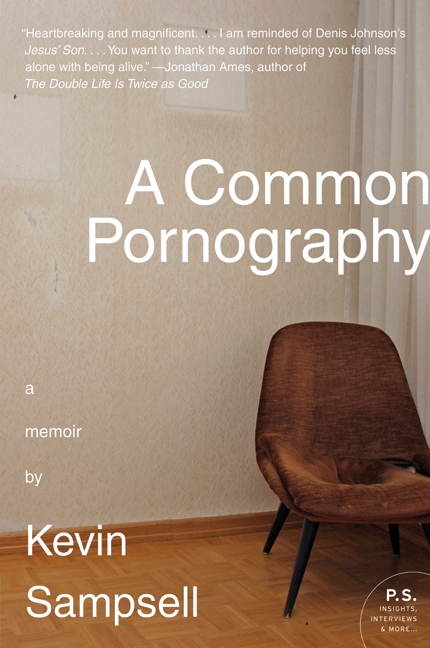Blake Butler
http://www.gillesdeleuzecommittedsuicideandsowilldrphil.com/
Blake Butler lives in Atlanta. His third book, There Is No Year, is forthcoming April 2011 from Harper Perennial.
http://www.gillesdeleuzecommittedsuicideandsowilldrphil.com/
Blake Butler lives in Atlanta. His third book, There Is No Year, is forthcoming April 2011 from Harper Perennial.
[This post originally appeared on my personal blog last year. In light of a new audience, and a new book from Ajvaz forthcoming on Dalkey in a few months, The Golden Age, I’ve reupped it here. Thanks! BB]
The signs of connective tissue in the films of David Lynch are in places very clear. Beyond Lynch’s own mentioning of the mesh of words, most vocally between Mulhollland Drive and INLAND EMPIRE, but also, I would insist, between all the films, in many ways the blank or horrendous spaces that make the films seem the most ‘underneath the viewer’s skin’ are the creation of the space itself, a portal both from film to film, as well as, I must demand, into human.
The rips in spaces in Lynch are all throughout, and in many ways, the definitive space of Lynch: the totem-being behind Winky’s, Club Silencio, the Black Lodge, the pink house on the sound stage and the ‘other version’ of Hollywood & Vine in INLAND EMPIRE, the Rabbits, Ben’s house in Blue Velvet, the exploding shed in Lost Highway, perhaps the entire terrain of Eraserhead, etc., etc. You could list these rooms forever.
You could also list, in your own life, the spaces of your mind that are contained in memory or in associative practice: sleep rooms, childhood slurrings, ruined pictures, unrecorded thoughts, most any second mostly. That you could also not truly make this list is important too, as here is an example, in Lynch’s hands, perhaps, of what occurs in evidence of the reckoning:

[Watch the whole scene here]
For day 2 of Kevin Sampsell week, I’d like to collect some various KS/A Common Pornography pornographalia from around the web and elsewhere. Below you’ll find some video, some review snippets, another excerpt from the memoir, and everything else to keep your Sampsell buzz afloat. If this turns out to be not enough, you can always peruse Kevin’s website, a free-flowing form of fun and e-orgasm. Hit it!
Kevin reads from ACP at the In The Flesh Reading Series 2-18-10
***** 5 Star review for ACP from Time Out New York: “…Sampsell shares loneliness with such intensity that his book almost defeats it—both his and yours.”
– A Sampsell short story (not in the memoir) from 52 Stories, “Jailbreak.”
Pillow Talk Episode 1: Kevin interviews our own Mike Young (produced & edited by Bryan Coffelt)
– A review of ACP on Blogcritics: “… The structure of A Common Pornography is narrative genius.”
…. and, lastly, for today, pg. 75 of A Common Pornography:
Dad gave me a vibrator once. Sort of oval-shaped. He gave it to me so I could wrap it and give it to Mom as a birthday present. Later, they kept it in a drawer by the bed. Then, shortly after, they slept in separate beds.
The 2nd edition of our Live Giants live online reading series, originally scheduled for tomorrow with the inestimable Dorothea Lasky, has unfortunately needed to be pushed back due to some personal constraints. Instead, Dottie will be reading here, live on the site, next Wednesday 3/3 at 9 PM. Please update your personal reminder devices accordingly. Those who have seen Dottie read know that this is not to be missed. In the meantime, you can use this leeway space to, if you happened to have not, acquaint yourself with Dottie’s AWE, truly one of the most fun and heartraw books of poems I’ve read in a long time, or to get excited for her soon forthcoming second book, also from Wave Books, the excellently titled Black Life. I’ve already begun digging in, and let me tell you: hold onto your head. See you next Wednesday!
 Earlier this month saw the release of my label-brother Kevin Sampsell’s memoir A Common Pornography, which I read in the light of a late evening on a sofa I bought from a friend. I’d had big expectations and excitement about this book, which in the course of reading turned to not only the pay off of that wanting, but being stuck simultaneously by a kind of reading feeling I could have never seen coming. Herein, this week we’ll be talking about the book and other things Sampsell, including his press Future Tense Books.
Earlier this month saw the release of my label-brother Kevin Sampsell’s memoir A Common Pornography, which I read in the light of a late evening on a sofa I bought from a friend. I’d had big expectations and excitement about this book, which in the course of reading turned to not only the pay off of that wanting, but being stuck simultaneously by a kind of reading feeling I could have never seen coming. Herein, this week we’ll be talking about the book and other things Sampsell, including his press Future Tense Books.
Among the many wonderful things about this book, perhaps the most surprising and beautiful for me was how the period chronicled in Kevin’s book, essentially his youth, adolescence, into his current age, felt at some points so familiar, and at the same time catching me by the side of the head. Kevin’s rendering of the odd but somehow most defining moments of aging so often missed in these kinds of books is so well nailed–he doesn’t overdescribe them, or romanticize them, but lays them out in all their hairy light–calm, common, uncommon, etched.
From his obsessive collecting of select pieces of porn (which he keeps hidden in the ceiling of his parents house), to the strange ways of sexual becoming with friends and paid help, to just the air of those spaces and people that exist with us for a time and somehow are that time, all of this rendered in eerily calm and perfect sentences, sometimes somewhat like a minimal Gary Lutz, A Common Pornography is a book I will long remember for its poise, heart, and humor, and for its making of a picture of an age that no one else has nailed quite so beautifully, and singularly.
The book is made up of many 1-3 page sections, each with titles, that together follow the timeline of Kevin’s life, each of which alone makes for its own little amazing object. Here’s one to whet your bib.
The toughest kid at our school was named Chongo, and he was a short but muscular Mexican who always seemed to be suspended or doing Saturday school. He lived in the pit of this valley that ran alongside a long irrigation pipe. The pipe was connected to the ditches surrounding our neighborhood and it had a flat surface on top lined with flimsy two-by-fours. For some reason, we always called this pipe “the floons.” My friends and I would often have races on the floons. There was an element of danger whenever we did because there were big gaps where you could fall through and go into the dirty water. And if we went too far down the floons we’d be dangerously close to what we called “Chongo Country.” Other kids had told us that if you got a good look into Chongo Country, you’d see all sorts of stolen bikes and bike parts in his weed-filled yard. When Chongo had his shirt off, they said, you could see a tattoo of Pontius Pilate across his chest. We never dared to look.
Purchase A Common Pornography at the links above, or from the publisher, or Amazon.
“Fuck the plot.” Edna O’Brien says that in a Paris Review interview. She then goes on to say this: “What matters is the imaginative truth.” I don’t know what she means, exactly, by “imaginative truth,” but I can imagine what she means.
It reminds me of something that somebody told me Rick Whitaker said: “Plot tells you how their life turns out. What the fuck do I care about how their life turns out? I want to know their heart.”
And that reminds me of this quote from Andy Devine: “We all know how the story ends. If you have the baby, then the baby will die. If you fall in love, then the love will end.”
In spite of my affection for those three quotes, I still like to think about story and plot. I still like it when things happen in fiction. In fact, I have always thought that one of the great things about being a fiction writer is that you can make anything happen.
![]() I read the first 60 pages of Joshua Cohen’s 800 page forthcoming Witz last night on my sofa. Holy fuck. Put your pants on. Mark your calendars. More on this later, but I just had to…
I read the first 60 pages of Joshua Cohen’s 800 page forthcoming Witz last night on my sofa. Holy fuck. Put your pants on. Mark your calendars. More on this later, but I just had to…